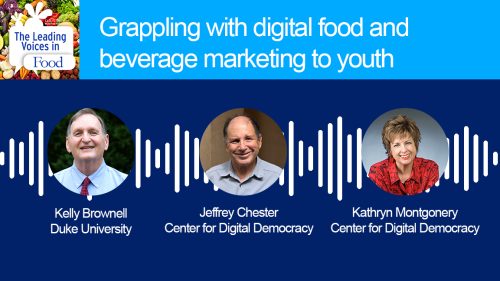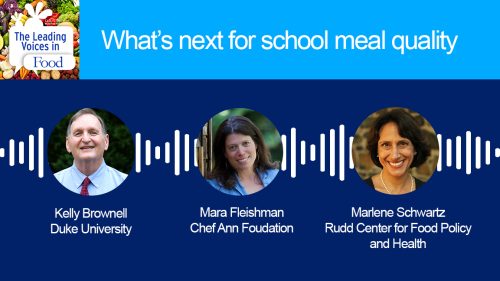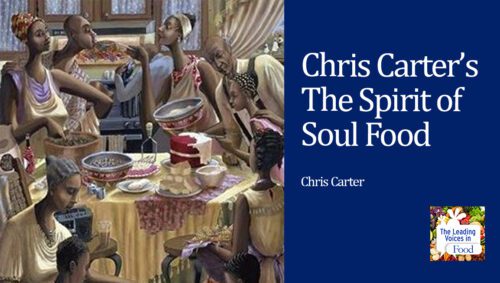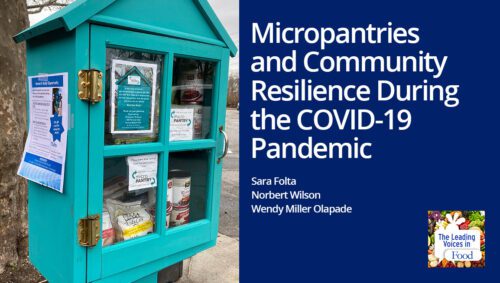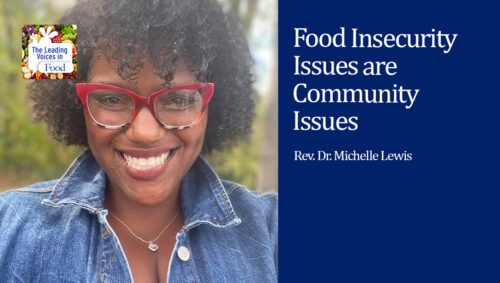The Leading Voices in Food
E15: Hisham Moharram Talks Agripreneurship and The Good Tree
Hisham Moharram describes himself as an agripreneur and an environmental and social justice activist. His life’s goal is to establish a local food economy and to show people that we can produce food with environmental stewardship and faith-based agribusiness at the core.
Subscribe: Apple Podcasts | TuneIN | YouTube Music | SoundCloud | PocketCasts | Radio Public
Tags: Advocacy & Food | Agriculture & Tech | Community & Economic Development | Faith & Food |

Hisham Moharram holds a bachelor’s degree in international agriculture and agricultural mechanization, a master’s degree in horticulture and a Ph.D. in plant breeding, although he earned his degree, is that US universities. He was born in Egypt and work there conducting agricultural genetic engineering research and on medicinal plant botanical products in the early 2000’s. He took a position at Rutgers University and worked on natural plant products and international agricultural development. In 2007 he made the conscious decision to use his scientific knowledge and experience in international agricultural development consulting in a way that would directly benefit people and the planet. From this decision came The Good Tree Project, an organic farm in Ocean County, New Jersey.
Interview Summary
What is The Good Tree Farm project and why did you get started with it?
Okay. So The Good Tree Farm project is going be what I will work on from now until I am long gone. It is to me the combining of everything that has passed in my life to date so that I can do my best in the years that remain to one please my maker, and put what he gave me to the benefit of people and planet.
Simply put it is an ambitious project. It will not be completed in my lifetime. It will probably go on and on as far as trying to “get done” for many generations because it’s about people and planet, and there’s a lot of work to do and a lot of places the objectives of The Good Tree Farm project need to be met.
What are those objectives of The Good Tree Farm project?
I look at our society today, and you can almost take it across the world regardless of level of development or culture, there is a drastically increasing inequity in societies. And collectively, a as a species, a human beings are–despite the detractors and the deniers–having such an impact on the ecosystem that this a spaceship called planet earth is an actual peril. And in Islam, the teachings of our Prophet Mohammed include a saying where he likened those who would sit by and watch while somebody did severe damage to two groups riding in a ship in the middle of the ocean. The group that has water is on the upper deck. The group that doesn’t have water, fresh water, is on the lower deck. So not out of ill intent and greed, but out of one thing to be less troublesome, someone had the bright idea of saying, let’s just make a hole beneath us and we can get all the water we want. And the Prophet said, if they let them be and they made that hole, the ship would sink and everybody would peril.
So we have to stop those who for ill intent or misguided good intent would do such damage that everybody is going to go down with the ship. We’re at that point, in my opinion, as a species with respect to this planet and all the other species that are on it. We have both a responsibility and an incredible power over the system and that’s part of what we will be judged upon as that’s what Islam teaches us. And we are messing up pretty badly. So those of us that can say or do something need to, because on the day of judgment we will be asked why we did not. I’m simply trying to have an answer.
The Good Tree Farm project is an organic farm, what are the activities you’re engaged in to sort of turn the tide?
So I actually am trying to address a number of things with this project and it’s all about finding the right strategic partners in each potential location. But ultimately what you’re looking at is the most precious resource we have, which is the human mind. So if you take a community and you look at those in that community that are underachieving their potential, their God-given-potential, you look at the reasons why, and you should as a community or a governance governance body or what have you, attempt to address that so that these human beings can now get a little closer to fulfilling their potential. It’s better for everybody. We have homelessness, we have runaway teenagers, we have substance abuse issues. We have people who either mistakenly got caught up in the system or made mistakes and went into correctional facilities and come out and they can’t find jobs and they’re not accepted. Sometimes with justified concerns on the part of the general public. But we have racial inequities.
We have a system in place that is not by accident. It’s by design over many, many decades, maybe even centuries. And there’s a power structure and a wealth structure that’s very deliberate, but it’s putting a lot of people at grave risk and its cheating society out of the potential of all those individuals. So I’m looking at the youth, for example, who don’t find a space for themselves in the economy or in their church or mosque or in their society. They’re still human beings that can innovate to such an extent, but they don’t get the opportunities. They’re not part of perhaps the right class of society, so they don’t get the breaks early. They don’t get the incubation type of assistance from family members or their status or whatever.
So it may be young girl in the slums of Nairobi, but she could be the next Einstein. We just don’t know that. We may never know that because she will never get the chances to explore that potential. So with respect to entrepreneurship, with respect to understanding their role in protecting the environment, understanding their role in being better citizens and engage with the issues and what means they have to affect policy and bring into office better policy makers. These are issues that need a third space for those categories of people to have open, honest discussions, explore their potential, start healing and see what they can do.
I can’t address things in engineering because I’m not an engineer, but I’m a plant biologist and that’s my field. So within my field I’m trying to through The Good Tree Project, basically bring together people who want to do impact investment locally with those demographics in their own community that need a helping hand on the farm. We can provide the housing, we can provide the incubator, we can provide a business opportunities we can provide-through that locally owned agribusiness–a means by which they can begin to strengthen the local food system of their home town where they grew up. Instead of everybody succumbing to the corporate model where you are simply a mobile labor and they’ll, even if it’s at a desk at a terminal, you still laboring for somebody and they’ll take you across the world where they need you and when they don’t need you, you get the pink slip.
You’ve painted a very dark and complex picture of the issues that we’re dealing with right now. But obviously an exciting aspect is the focus on youth and there’s sort of a renewal available there. Could talk a little bit more about the how of how do you engage this youth in a meaningful way that is building their minds and what is the sort of new agripreneur as a result?
So if you look at it, take it from the 1980’s through to the late 2020s. Okay. That kind of decade of age bracket. My perception from just studying things and following a news reports and analysis of socioeconomic issues is that there is a large number of folks in that age bracket who either are underemployed, unemployed, or not finding themselves. Wondering whether the high cost of a university degree is really worth it anymore. And they don’t know what to do with themselves as far as having a good life, enjoying it, but also feeling like they are fulfilling themselves and their potential. Within my focus I’m hoping to help someone who may be interested in starting a business growing insects. Of course they would have to be not afraid of insects.
Why would one grow insects?
Because because there is a market for beneficial insects. There is growing interest in organic farming in the US and internationally. Well, one of the mainstays of organic farming is not spraying so the harmful insects–harmful in our view because they eat our crops, but they have their place in the ecosystem–we want to control their population. Organic agriculture does. But we don’t want to destroy them. So if you wanted to take the agricultural chemical companies approach you with nuke everybody. But if you’re going to do the balanced approach of live and let live, but control them so that they don’t eat you out of business, then you will employ things like beneficial insects. They keep the population in check, but they don’t wipe them out completely. Now you’re starting organic farmer. Where are you going to buy your lacewings? Where are you going to buy your praying mantises, your lady bugs. And they’re grown.
They’re reared by people who have businesses where people who have a love and a passion for entomology and insects and aren’t afraid of bugs would basically develop a business. They rear these bugs for resale and they make a lot of money. That’s a simple example. Take beehive’s.lots of interest in the declining population of bee colonies across the country. And the impact of, again, industrial chemicals used in agriculture. Someone who is really interested in that can develop different honey products because depending on the season, depending on the crop that they go to harvest pollen and nectar from the honey will have different flavors. It will even have some of the medicinal properties of the crop that they fed on. So you literally have different honey products. You can also include things like beeswax, pollen, propolis.
You can raise the bees themselves to sell them to people who are starting up or adding to their beehive business. So again, it’s an aspect where someone who’s not afraid to bees and who knows how to handle them, can study and learn, can develop a business that they can take anywhere in the world with them. Just like the raising of beneficial insects. You take any other aspect of the diversified plan for a local agribusiness and there is going to be someone with a chemistry or biology or in some cases even physics, engineering, because we’re talking about using shipping containers for year round production in a shipping container greenhouses. Making mobile homes for those farm agripreneurs, where they can literally haul their home from one location to another. We’re starting another farm. The whole team can be relocated to help set it up. And their homes are there with them because they just got trucked over in shipping containers.
Your goal at The Good Tree Project is to empower these faith-based communities and faith-based private schools in underserved communities by providing access to affordable organic produce and these apprenticeship opportunities related to food justice. Could you unpack the food justice piece that a little bit more and why that matters for your work?
Yes. So food justice for me has to do with being able to afford high quality food and having access to it as far as just the logistics and the convenience. So when you look at where vulnerable, populations that don’t have access to healthy food as easily or cannot afford it because they’re not making the kind of income that can sustain purchasing from Whole Foods or whatever. Typically they are in what was a few years called food deserts or places where there aren’t a grocery stores that bring in fresh food. They don’t have necessarily an active farmer’s market. They’re not near farming communities. So the children or the youth of those communities, often many of them, if they’re a faith, people of faith, communities of faith would have a Catholic school, but would have a Muslim school, would have a Jewish school, would have whatever it’s affiliated with their faith. None of them get tax dollars because they’re faith based.
The schools that are public get tax dollars. They get lunches. They get access to a government funded access to a farm, produce that’s local. Private schools don’t do that, Can’t. They can’t access it. A lot of those locations also, if someone wanted to go to a farmer’s market to buy for his or her family fresh produce, they’d have to drive very far. And often they work two or three jobs and they have one car and it breaks down a lot. So going to a distant farmer’s market is a gamble. So again, how we got to get the food to them. So basically what I’m thinking is, okay, so a lot of these communities are dis-empowered also in the sense that they do not own property. That’s another aspect of our country’s history where minorities, racial or otherwise, were dis-empowered by making sure that they either don’t or lose access to ownership of land.
Whereas you look at the big churches in America, often they’re white, they own a lot of land. That’s one of the biggest land owners in America: churches. But the inner city black churches don’t. The mosques don’t. The Hindu temples don’t. Owning land is something that these faith groups are new. They’re still in their infancy in developing perhaps. But if you get these faith groups to be part owners of farms, if you get their faith based schools to be part owners, you can now also empower their own youth. Typically you’ll have a few percentage points of the youth that are really interested and serious to make a go of it. That’s often the case. So, but if you have a community with 5,000 youth, because there are 40,000 people in that demographic, you can easily find the number you want to go help and learn and then bring the produce back to their church or the mosque or their school and sell it for a profit that they share with the farm.
Now the youth has learned and they brought the food back at affordable prices to their own community.
It seems like a key challenge is if you want to get into farming, you need the access to the lands.
So that’s the key. Yes. And I’ve been this year in particular, I’ve been visiting communities to basically try and put together these strategic partnerships. Every single prayer place the key issue is we can’t afford it. The farms are too expensive and the people saying that are the people who want to be involved in running a project. So basically a strategic partnership is like this: You’re not a farmer, but you’re an academician with a good job and you have a desire to put some of your income towards impact investment. You’re not giving it away, you’re investing it, but you want it to make a difference. Not simply bring you profit back to your bank account, but make a difference in people’s lives.
You want both, but you’re moderating your desire for cash profit. So you put that together with the youth that want to own land. Now they both own the land. One is getting a return when the venture turns a profit, the others are learning and working hard because they’ve got a vested interest in the business succeeding. That’s how they’re going to make their career. So they’ve helped each other and they’re co-owners of their own land locally. It hasn’t gone outside the community in terms of ownership.
What do you feel like has been your greatest success so far and your greatest learning experience?
So I think that the greatest success I can point to is that I’m finding it not difficult to bring together the strategic partners in almost every community I’ve visited. Takes about a week. And I’m driving lots of places, meeting lots of people. Thinking and asking and talking and eventually you find in this community these are the right strategic partners.
But the challenge has been to be able to access enough of their communities to convince those who have impact investment potential to go ahead and begin pulling their financial resources to empower their youth. The only way I can think of starting the ball rolling in that second challenging area is we’re putting up our own real estate ownership in New Jersey as a collateral in every place that we go to. When they invest, they’ll be investing to be part owners of an existing farm and their investment will go towards buying a second farm where they reside. So now they become owners in multiple locations. So five years down the line when we’ve got five farms, we’ve got share owners, part owners from five different communities in all of the five farms. It’s a security issue. But it gets people who have $5,000 and are hesitant more encouraged to say Yeah, I’ll go in and you. You put five of those at $25,000. You got $125,000. You can put a good down payment on a good piece of property.
At the Duke World Food Policy Center we’re trying to play a bridging role and it sounds like you have invested in being a matchmaker and all on all levels of what you’re trying to do.
So this has to be a lot more people because I cannot keep on trying to do it all. I’m reasonably successful. But for this to really achieve its potential, we need a lot more people jumping on board to do this.


